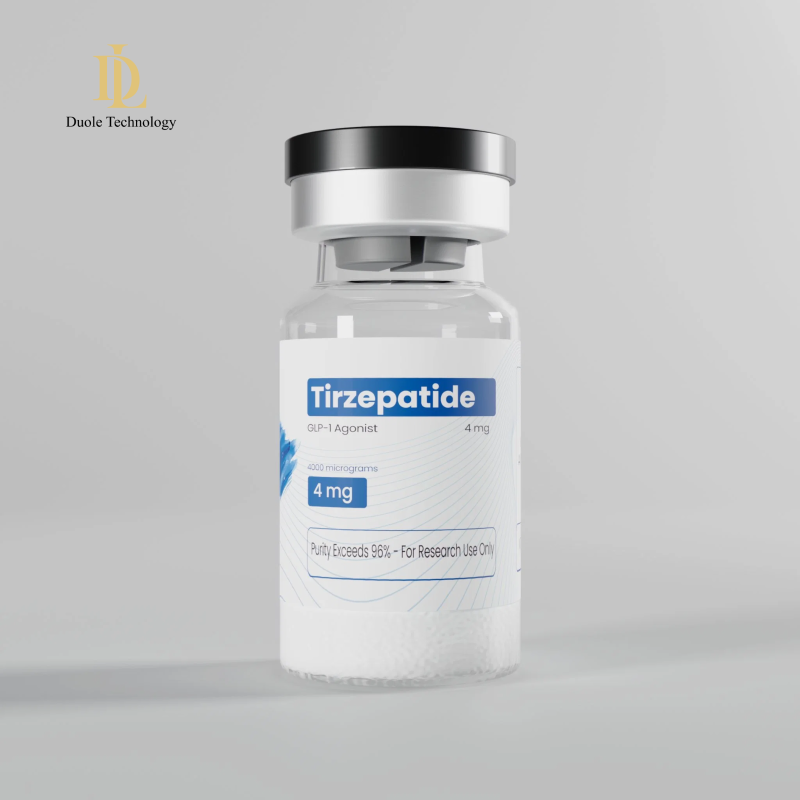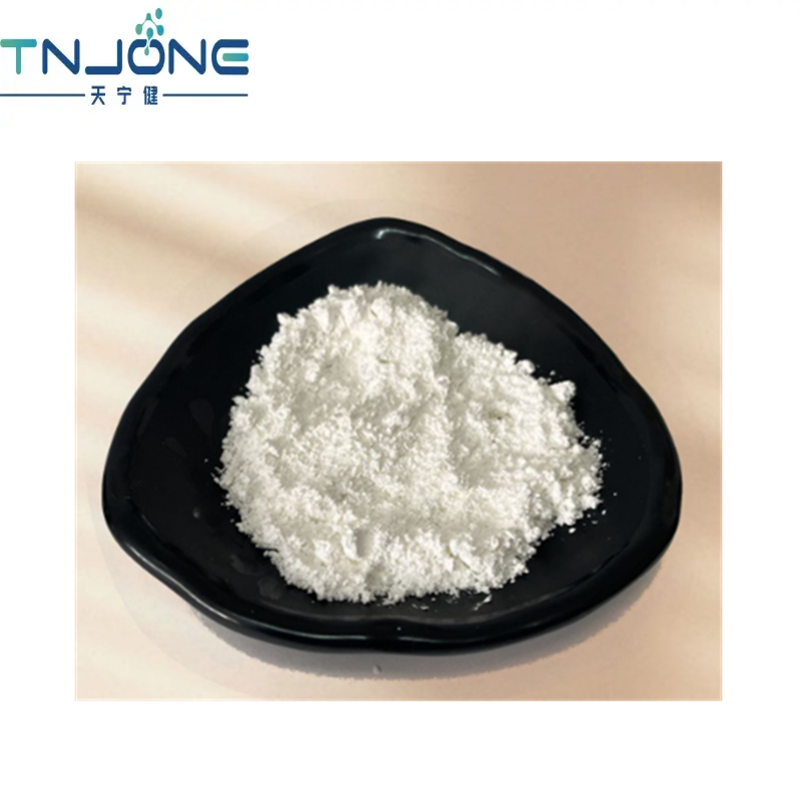-
Categories
-
Pharmaceutical Intermediates
-
Active Pharmaceutical Ingredients
-
Food Additives
- Industrial Coatings
- Agrochemicals
- Dyes and Pigments
- Surfactant
- Flavors and Fragrances
- Chemical Reagents
- Catalyst and Auxiliary
- Natural Products
- Inorganic Chemistry
-
Organic Chemistry
-
Biochemical Engineering
- Analytical Chemistry
-
Cosmetic Ingredient
- Water Treatment Chemical
-
Pharmaceutical Intermediates
Promotion
ECHEMI Mall
Wholesale
Weekly Price
Exhibition
News
-
Trade Service
introduction
introductionRecently, Nature predicted the top ten events to watch in 2023, 4 of which are related to
life sciences.
In fact, some people can't understand why to predict, and let it happen when something happens
.
But I believe that the essence of forecasting is an extension of the past and present thinking, and its purpose is to prepare before the event happens, and then face
it calmly.
It is not delusional to want to take everything and control everything, this is
delusional.
Next, let's stand on the shoulders of Nature to see the future development of things, to discover the underlying laws of nature.
.
.
01 The next generation of vaccines
The next generation of vaccinesThe great success of mRNA new crown vaccines has aroused people's interest: the exploration
of mRNA vaccines in other disease areas.
Germany's BioNTech last week launched phase 1 clinical trials
of mRNA vaccines against malaria and herpes simplex.
On December 21, 2022, BioNTech announced the initiation of a Phase 1 clinical trial
of the preventive herpes simplex virus-2 vaccine candidate BNT163.
On December 23, 2022, BioNTech announced the launch of a Phase 1 clinical trial of the malaria vaccine program BNT165, followed by BioNTech's Phase 1 clinical trial
on a tuberculosis vaccine.
Of course, Moderna, a "peer of the wrongdoers," is also developing mRNA vaccine
candidates for treating the viruses that cause genital herpes and shingles.
However, compared to these slow-moving vaccines, the new crown vaccine has been replaced at a rapid pace.
.
.
In order to cope with different subspecies of SARS-CoV-2, under rapid iteration, the highly competitive strains
are constantly screened.
For the current major circulating strains, Moderna's BA.
4/.
5 vaccine against Omicron bivalent COVID-19 booster vaccine was urgently approved by the FDA in August this year; The same target Omicron bivalent COVID-19 booster vaccine, BioNTech was also urgently approved
by the FDA at the same time.
Not only that, in November 2022, BioNTech and Pfizer collaborated to begin a phase I trial
of an mRNA vaccine designed to prevent COVID-19 and influenza.
The combination vaccine contains mRNA strands
encoding SARS-CoV-2, Omicron BA.
4/BA.
5 and binding proteins for four influenza variants.
The perspective switched to China, and in September 2022, the world's first inhaled new crown vaccine, CanSino's "Kweisha Wuyou", was urgently approved
by the NMPA.
People are changing their "stereotypes"
of the original vaccine from different pathogens and different vaccination methods.
of mRNA vaccines in other disease areas.
At the same time, people are changing their "stereotypes"
of the original vaccine from different pathogens and different vaccination methods.
。
02 Pathogen Watch List
Pathogen Watch ListNature expects the World Health Organization (WTO) to publish a revised list
of priority pathogens.
About 300 scientists will review evidence from more than 25 families of viruses and bacteria to identify pathogens
that could lead to future outbreaks.
The R&D roadmap for each priority pathogen will outline knowledge gaps, identify research priorities, and guide the development of
vaccines, therapeutics, and diagnostic tests.
The almost frantic evolution of SARS-CoV-2 has forced people to face this problem
squarely.
Humanity will learn to "plan ahead", not only to predict the evolution of SARS-CoV-2, but also to peek into the future disaster
.
of priority pathogens.
Humanity will learn to "plan ahead", not only to predict the evolution of SARS-CoV-2, but also to peek into the future disaster
.
03 CRISPR therapy
CRISPR therapyIn 2023, the first CRISPR gene-editing therapy - exagamglogene may be ushered in
autotemcel(exa-cel).
It was developed by Vertex and CRISPR
Therapeutics co-developed a CRISPR gene-editing therapy
for the treatment of sickle cell disease (SCD), transfusion-dependent β-thalassemia (TDT).
It works by collecting a patient's own stem cells, using CRISPR-Cas9 technology to edit the defective gene, and then reinfusing the stem cells into the patient
.
At the American Society of Hematology (ASH) in December, the two companies presented some of the clinical research data
of exa-cel.
Previously, exa-cel had received FDA designations
for Advanced Regenerative Medicine (RMAT), Fast Track, Orphan Drugs, and Rare Pediatric Diseases for SCD and TDT.
In the EU, it has received orphan drug designation from the European Commission and SCD and TDT Priority Drugs (PRIME) designations
from the European Medicines Agency (EMA).
The two companies have begun filing exa-cel's rolling biologics license application (BLA)
with the FDA.
Carmen, Executive Vice President of Global Drug Development and Medical Affairs and Chief Medical Officer of Vertex
Dr Bozic said: "We are still on track to complete the submission of the first CRISPR-based therapeutics in the EU and the UK this year, and we have already launched rolling submissions in the US, which we plan to complete
in the first quarter of 2023.
After CRISPR gene editing was controversially used to create the world's first "gene-edited baby" in 2018, humanity may face this ethical question
again in 2023.
again in 2023.
04 Alzheimer's medications
Alzheimer's medicationsAlzheimer's disease (AD), commonly known as "Alzheimer's disease," is 21
One of
the greatest global health threats of the century.
In China, with the gradual aging of AD, AD deaths have risen to the fifth leading cause of death among urban and rural residents in China
bits
.
Even though the development of AD drugs has never stopped, its failure rate of 99.
6% has made the progress of AD drugs unsatisfactory
.
At present, only two AD drugs have been approved for marketing in the world, of which
In 2021, it just received conditional approval in China for the domestically produced drug mannonate sodium for improving clinical symptoms of mild to moderate AD, and announced the cessation of its international phase III clinical study in the first half of this year; And the FDA
First approved DMT treatment
Aducanemab also announced this year that it was suspending its European listing application
.
Just when all AD drugs were "killed", at the Alzheimer's Disease Clinical Research Conference (CTAD) at the end of November this year, there was exciting news.
.
.
An investigational drug jointly developed by Eisai and Biogen
Lecanemab met the primary endpoint and all secondary endpoints in 1,795 early AD subjects with a safety profile that met expectations
.
The results of this phase III clinical trial indicate: treatment
After 18 months, cognitive decline was reduced by 27%
in the Lecanemab-treated group compared with the placebo group.
In terms of clearing Aβ levels, treatment 18
After one month, Lecanemab significantly reduced intracerebral Aβ load compared with placebo (difference -59.
1
centiloids, 95% confidence interval [CI] -62.
6 to -55.
6, P < 0.
001), and the mean Aβ PET was 22.
99
centiloids, below the Aβ positive threshold (Aβ PET < 30
centiloids)
。 Of course, nothing is more important than safety, given the two previous patient deaths, there is a big concern about whether people taking anticoagulant drugs are more likely to develop brain hemorrhages due to lecanemab.
There are ongoing disputes about AD, and we will still face many difficulties in 2023.
The real benefits of Lecanemab's promotion? How long should the duration of action and treatment of the drug last? And the risk of infusion for patients, etc.
.
.
the greatest global health threats of the century.
In China, with the gradual aging of AD, AD deaths have risen to the fifth leading cause of death among urban and rural residents in China bits
.
Experimental drugs Lecanemab met the primary endpoint and all secondary endpoints in 1,795 early AD subjects with a safety profile that met expectations
.
The Lecanemab-treated group experienced a 27%
reduction in cognitive decline compared with the placebo group.
Can significantly reduce the Aβ load in the brain below the Aβ positive threshold The dispute about AD continues, and we will still face many difficulties in 2023.
The real benefits of Lecanemab's promotion? How long should the duration of action and treatment of the drug last? And the risk of infusion for patients, etc.
.
.
Resources:
Resources:BioNTech official website BioNTech official website
Moderna's official website
Moderna's official websiteVertex official website
Vertex official websiteEisai's official website
Eisai's official websiteOther publicly available information Other publicly available information







